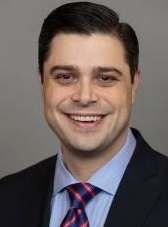
“Yet, I am learning.” As cardiothoracic surgeons continuous training is critical to our own personal and professional success. In fact, failure to acquire new knowledge and skills, regardless of surgical experience, is to fail in realizing one’s true potential.
In this post, I would like to provide some food for thought and context surrounding the importance of continuous training and acquisition of new knowledge and skills in our field. Sure, this encompasses the practical points of participating in CME events, attending surgical conferences, and utilizing available skills workshops or events, but the principles set forth below provide a more holistic perspective behind the purpose and reasoning for continued training as a cardiothoracic surgeon.
“Life is like riding a bike. To keep your balance, you must keep moving.” – Albert Einstein
In the simplest of terms, in the field of cardiothoracic surgery, a failure to continue training, pursue new skills or techniques, or acquire new knowledge in the face of the rapid changes we see in medical and surgical technology is to the peril of us and our patients.
Well-balanced surgeons realize that consistent refinement of and redefinition of their professional and personal lives allows them to function at an optimum level. Thus, it remains imperative to keep moving forward in the pursuit of learning new things as a practicing surgeon.
Try to avoid becoming stagnant in your professional career as a surgeon and in your personal life. By continuously training in all aspects of your life, you will become a well-rounded and better-balanced person and surgeon.
Well-balanced surgeons realize that consistent refinement of and redefinition of their professional and personal lives allows them to function at an optimum level.
“If you’re are afraid to fail, then you’re probably going to fail.” – Kobe Bryant
When asked, surgeons often hint that a fundamental barrier to the pursuit of continuous training or acquisition of new skills is a fear of failure. By nature, surgeons avoid opportunities to fail; in fact, for many of us, the idea of failure is not written in our DNA.
Once surgeons settle into a practice and become comfortable, the idea of stepping out into an unknown area frequently conjures up feelings of discomfort or fear of trying something new. It is in this space of uncertainty and discomfort that a separation between those who will continue to achieve and those who will become stagnant will reveal itself. To continue to achieve, means to continue to train.
“Better a good mentor for one year, than all books of a library" – Chinese Proverb
The role of personal mentorship for every aspiring, developing, or practicing surgeon cannot be emphasized enough. Ask any successful surgeon the keys to their success, and you will be hard pressed to find one surgeon who doesn’t mention the critical role that mentorship has played in their career.
As detailed in the aforementioned Proverb, the key to mentorship is finding and developing a relationship with a “good mentor.” A good mentor will provide not only provide guidance but serves as, perhaps, the most important source of continuous training that you will receive.
Embrace these relationships and look to find great mentors for many different areas of your professional activities. You will likely have surgical mentors or leadership mentors. Also look to find mentors outside of the surgical or medical communities who can provide expanded perspective on life outside of the hospital or clinical environment.
In the end, sure, the professional reputation or position of a mentor is certainly important, but even more important is who that mentor is to you and the relationship you have with him/her. Like all important relationships in life, these connections take time to develop and are deeply rooted in the personal dedications to developing the relationships by both parties.
As you continue to ponder your approaches to your surgical career, try to remember that many of the surgical giants that have come before you and whom you may revere remained students of our craft their entire lives. It is in these examples that we should find solace and unwavering motivation to continue to train ourselves.
I would like to acknowledge the contributions of Antonio F. Corno, MD, for the provision of inspiring quotations for the preparation of this post.
Article updated August 23, 2021.
